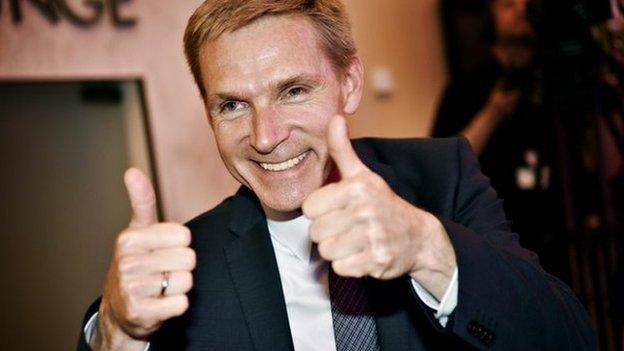Denmark election: Anti-EU party sets Rasmussen tough task
- Published
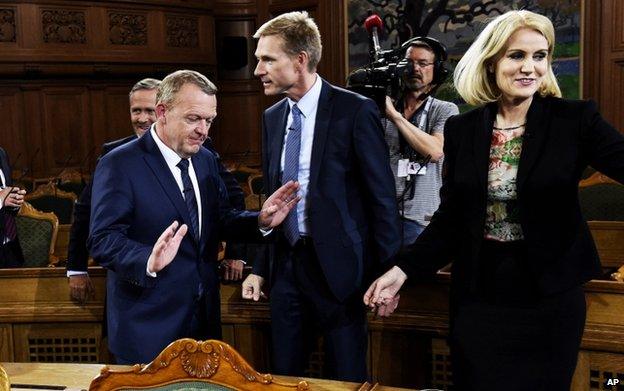
Mr Rasmussen (second left) is likely to face tough negotiations with Mr Dahl (centre)
The centre-right bloc which won Denmark's general election has begun negotiations to form a new government.
The bloc's leader, Lars Lokke Rasmussen, looks likely to succeed Helle Thorning-Schmidt as prime minister.
But difficult talks lie ahead. Mr Rasmussen's own Venstre (Liberal) party saw great losses in Thursday's poll, and the biggest party in the right-bloc is now the anti-immigration Danish People's Party (DPP).
As a result, the bloc that will rule Denmark is likely to be very different from the one Mr Rasmussen led when he was prime minister in 2009-2011.
Worried faces
We have yet to fully understand the roots of the DPP's success, but its calls for tougher asylum policies combined with demands for border control seem to have paid off, amid concern over the public cost of immigration.
It was expected to make huge gains, but on election night it was clear that it had done even better than expected - increasing its share of the vote by 8.8%.
The DPP took 21.1% of the vote, while Venstre - the party of the likely premier - saw its worst election result since 1990, with less than 20%.
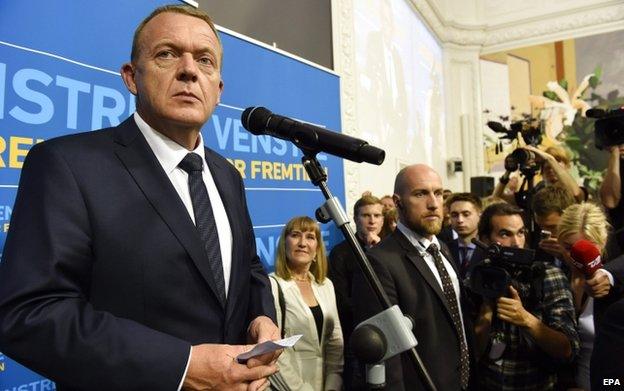
Lars Lokke Rasmussen's popularity has fallen
A lot of long-serving Venstre MPs will lose their seats. Their election party was a strange mix of worried faces and joyful cheers.
Much of Venstre's failing support is due to Mr Rasmussen himself. Polls have indicated he scores poorly when voters rate him for trustworthiness, following a string of scandals and media stories over the years.
As the likely prime minster, he will have to manoeuvre carefully with a strong DPP. Another strong force within the right-wing bloc will be the Liberal Alliance, which also saw large gains after campaigning for tax and spending cuts - quite the opposite of the DPP's more social-democratic economics.
Questions pile up
Many questions about Mr Rasmussen's government remain unanswered, and the coming weeks will see tough talks.
The questions pile up: Will Venstre form a government on its own? Or is the DPP ripe for the responsibility of forming a coalition government?
Either way the right-wing bloc will have to deal with differences in terms of euroscepticism and Denmark's position vis-a-vis David Cameron's attempt to renegotiate the UK's EU membership terms. So far the right-wing bloc has signalled support for Mr Cameron's bid.
Back in the losing left-wing bloc, Mrs Thorning-Schmidt - Denmark's first female prime minister - announced that she would step down as leader of the Social Democrats.
Everything points to Mette Frederiksen as her successor.
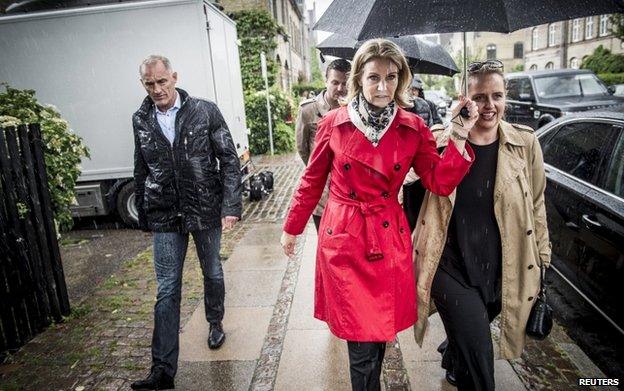
Helle Thorning-Schmidt was Denmark's first female prime minister
Mrs Thorning-Schmidt did not mention any names in her succession speech, but noted that she would not be the last female prime minister her party would have.
It is still unclear what she will do next. At the age of 48, she is a relatively young former PM, and she has previously shown an ambition for a position in international politics.
It is summer time in Denmark - but for everyone involved in politics, vacations will have to wait.
Asmus Leth Olsen is an assistant professor at the department of political science at the University of Copenhagen.
- Published19 June 2015
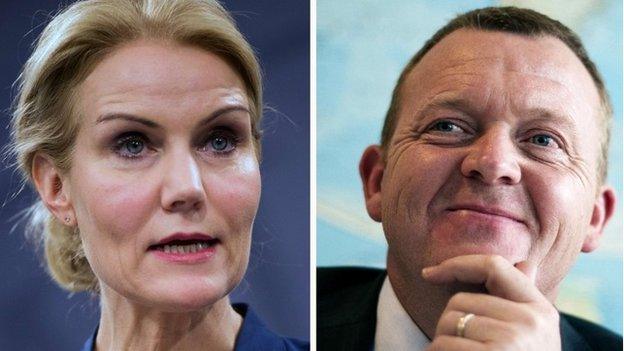
- Published19 June 2015
